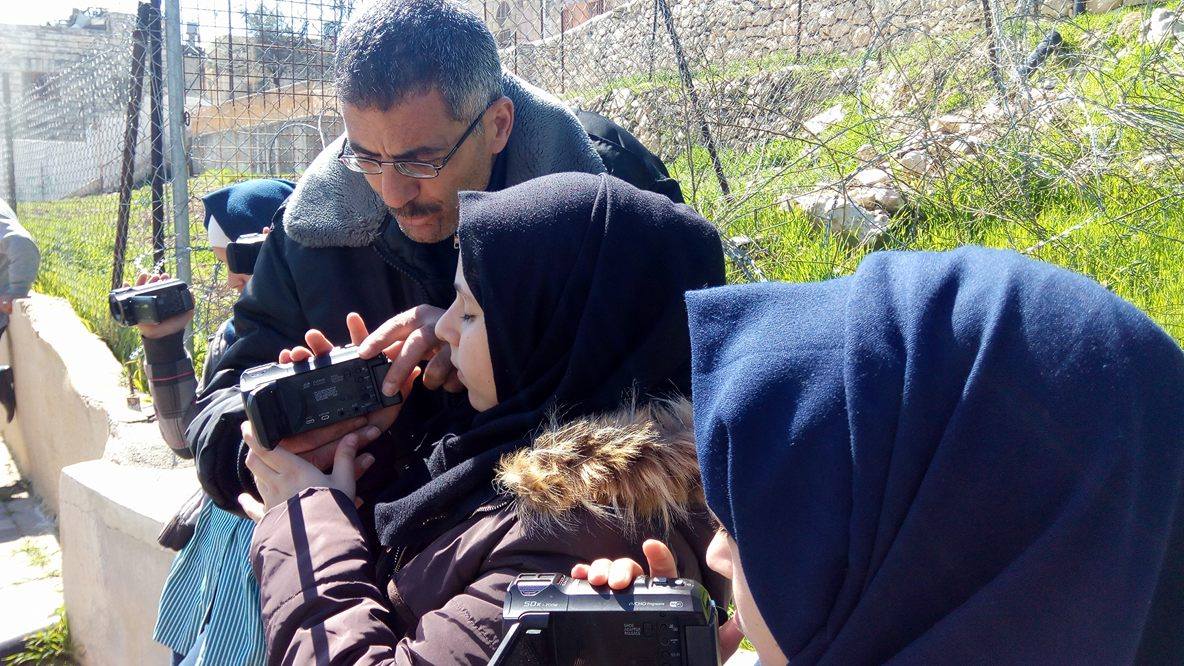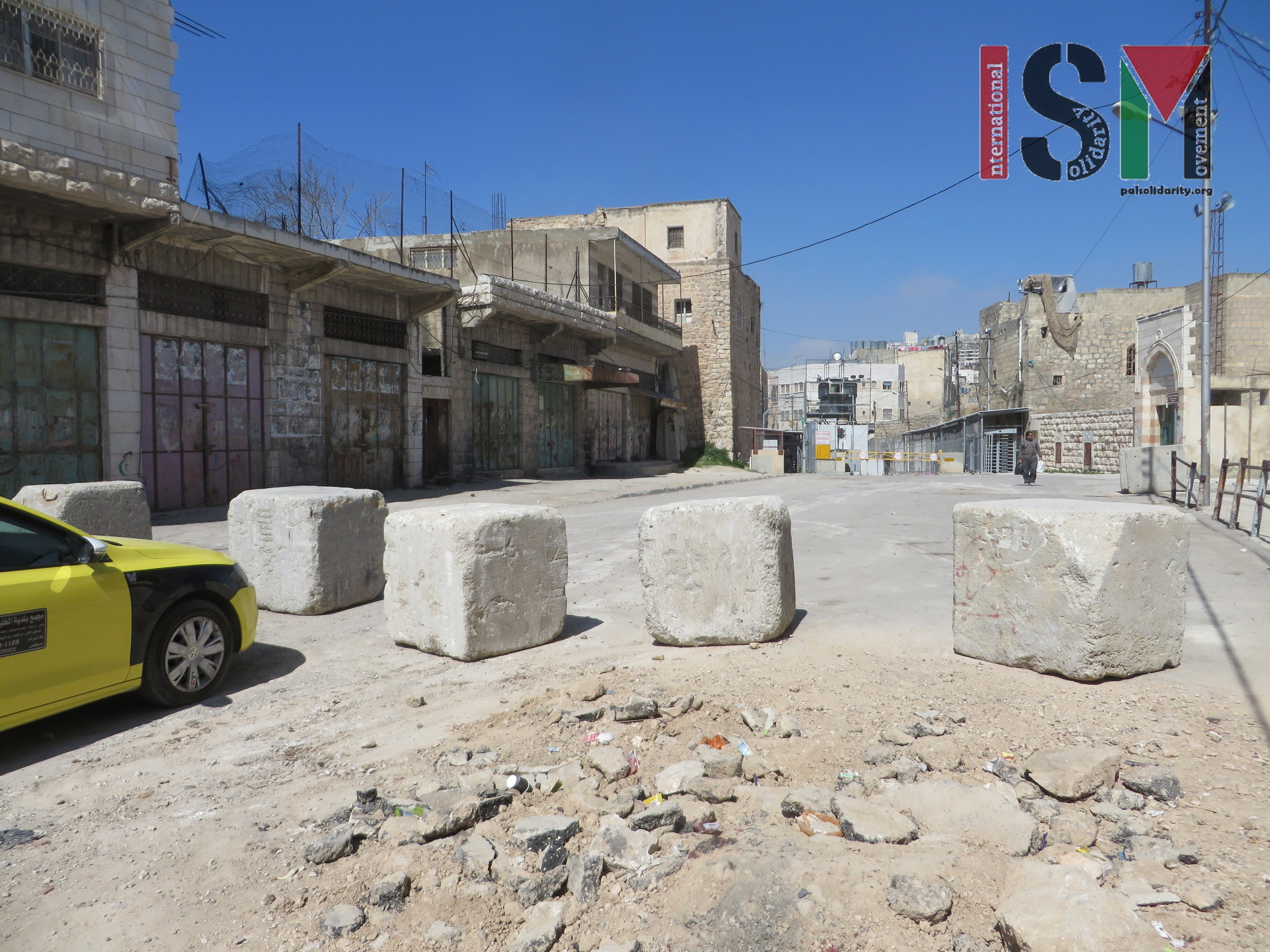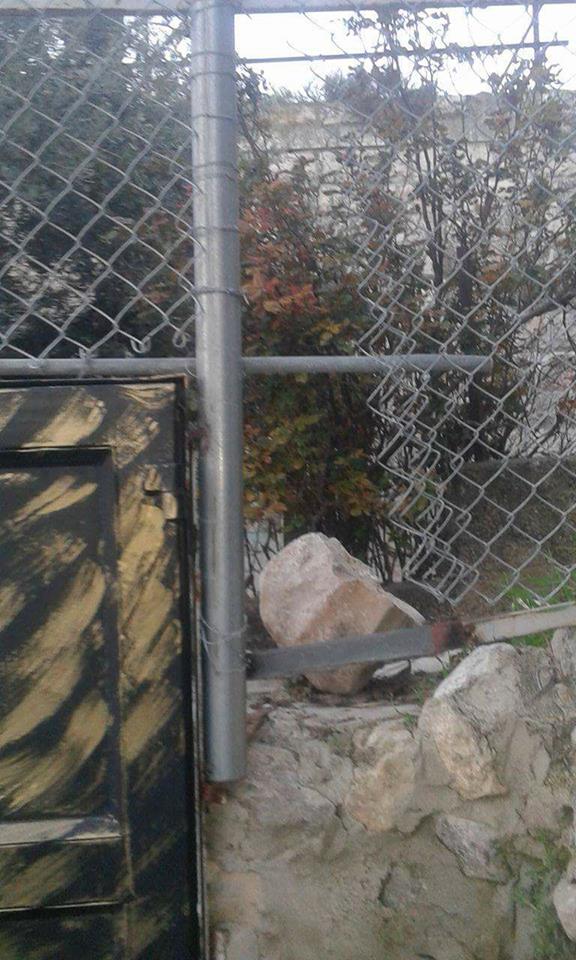Tag: Hebron
-
A new generation learns to ‘shoot’ the occupation
Human Rights Defenders have started a new project to protect the human rights of the children who have to live and study in the middle of the occupation and ghettoisation which is the centre of Hebron. Last Sunday, 5th March, the first of four schools, Qurtuba School, had training in how to use video cameras…
-
Step by step Israeli forces limit access to Ibrahimi mosque area
7th March 2017 | International Solidarity Movement, al-Khalil team | Hebron, occupied Palestine Israeli forces on Monday night installed more concrete blocks near Queitun checkpoint in occupied al-Khalil (Hebron) further restricting Palestinian freedom of movement. Israeli forces put a new line of cement blocks several meters away from Shuhada checkpoint, entirely blocking the access to…
-
Illegal settlers break into kindergarten, damage property
7th March 2017 | International Solidarity Movement, al-Khalil team | Hebron, occupied Palestine Colonial settlers from the illegal settlements in occupied al-Khalil (Hebron) have repeatedly invaded and damaged a Palestinian kindergarten located on Shuhada Street over the last two days. On Saturday night, the colonial settlers entered the Shuhada Street kindergarten, stealing two Palestinian flags…



